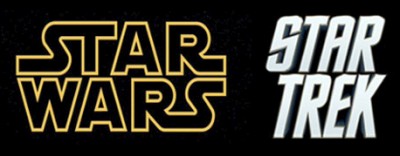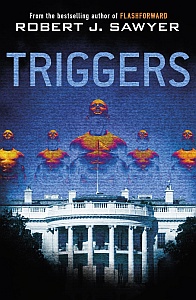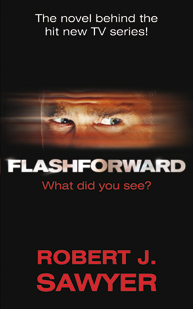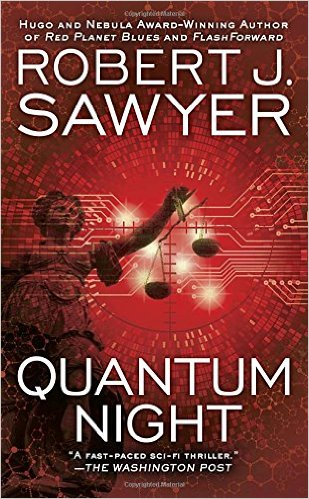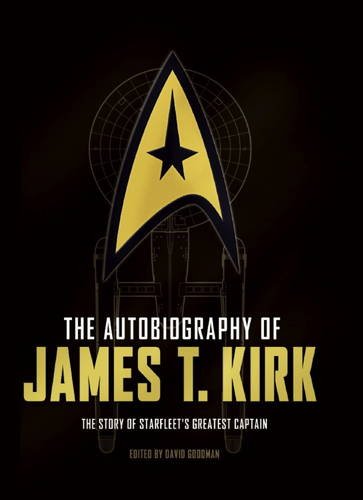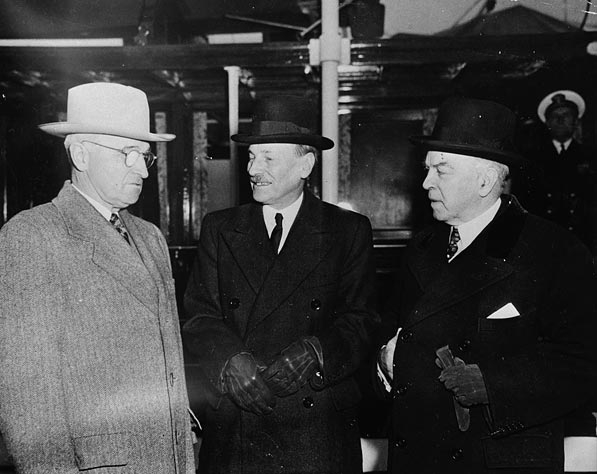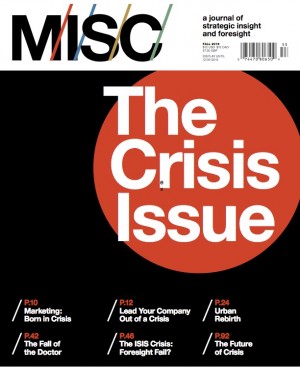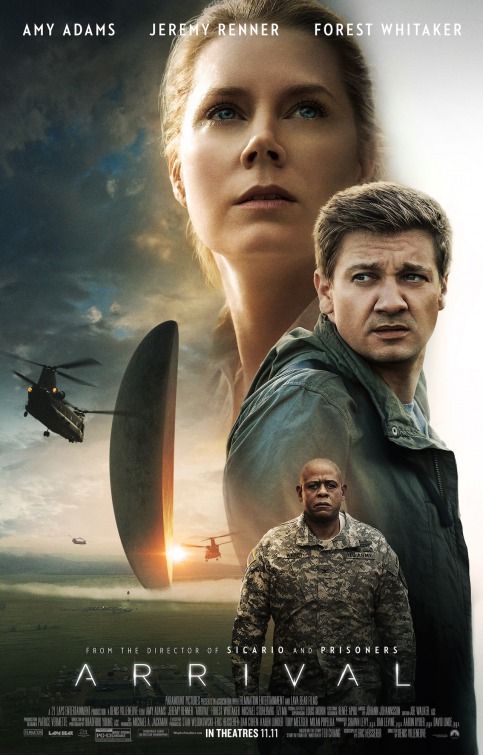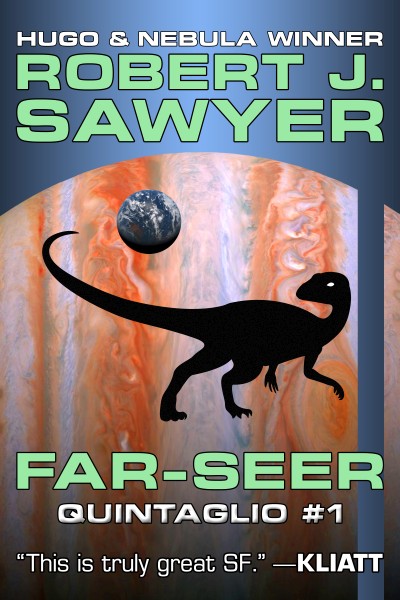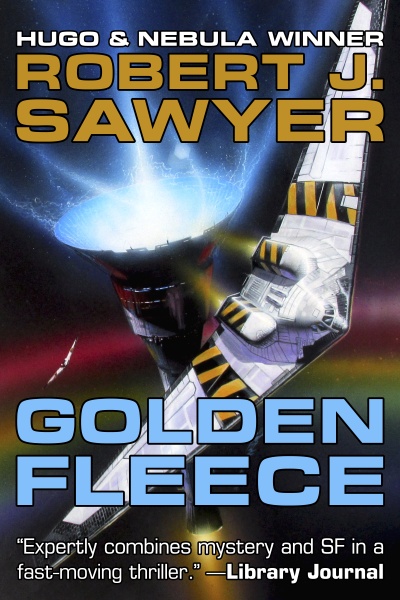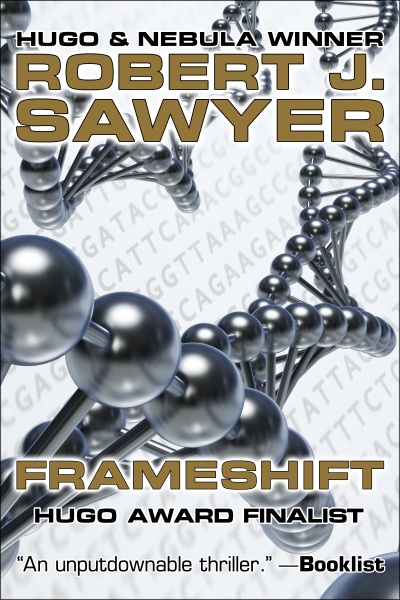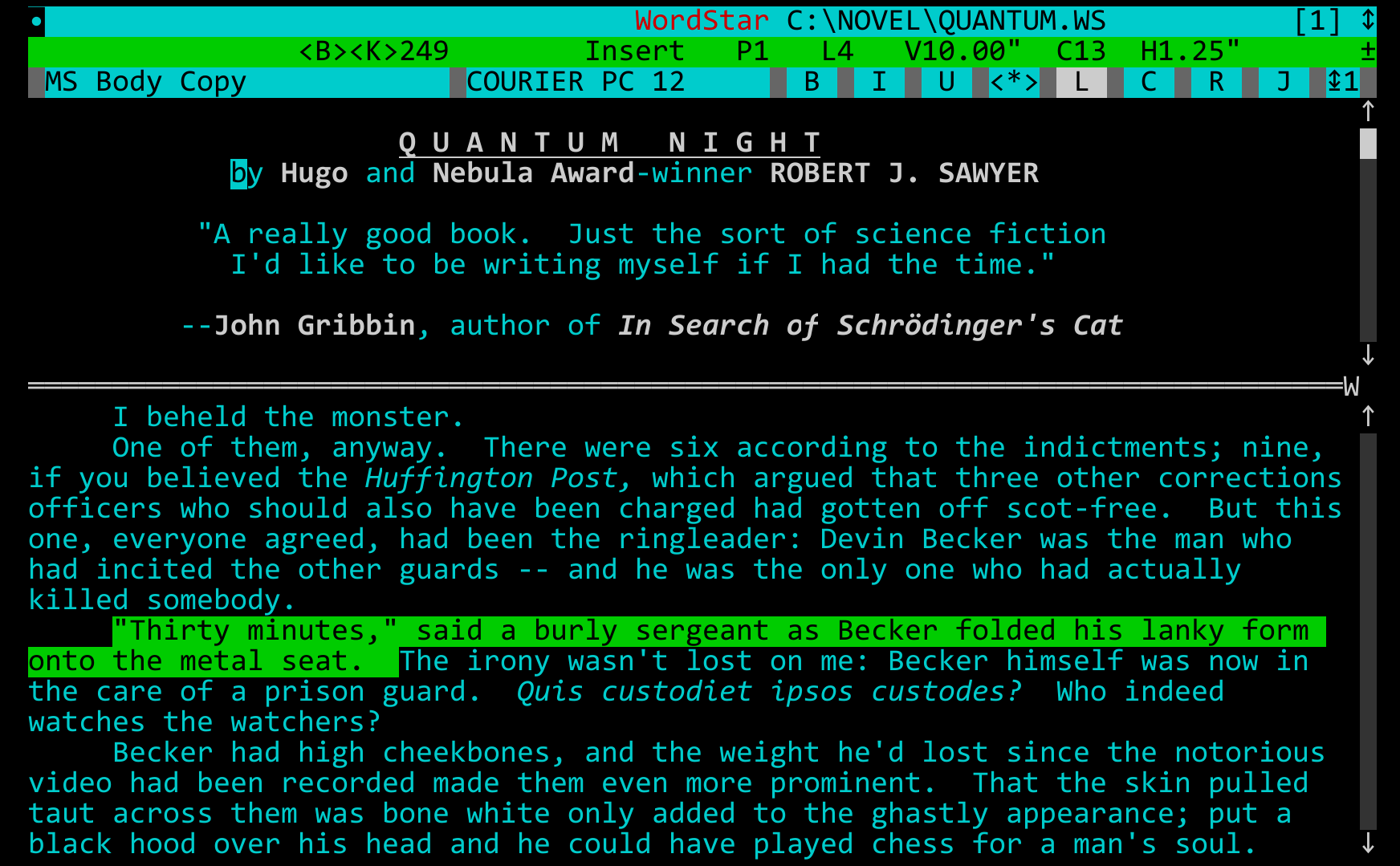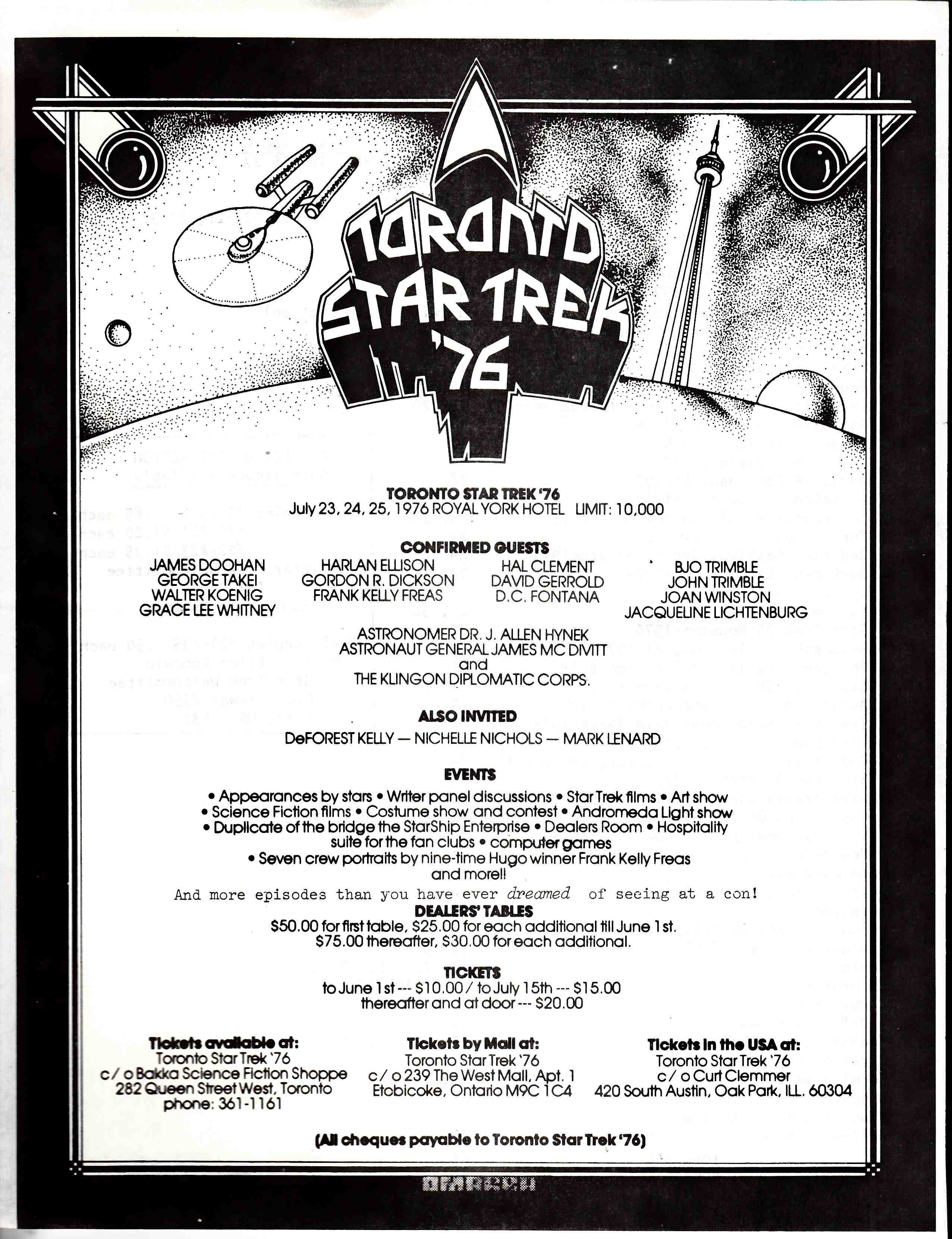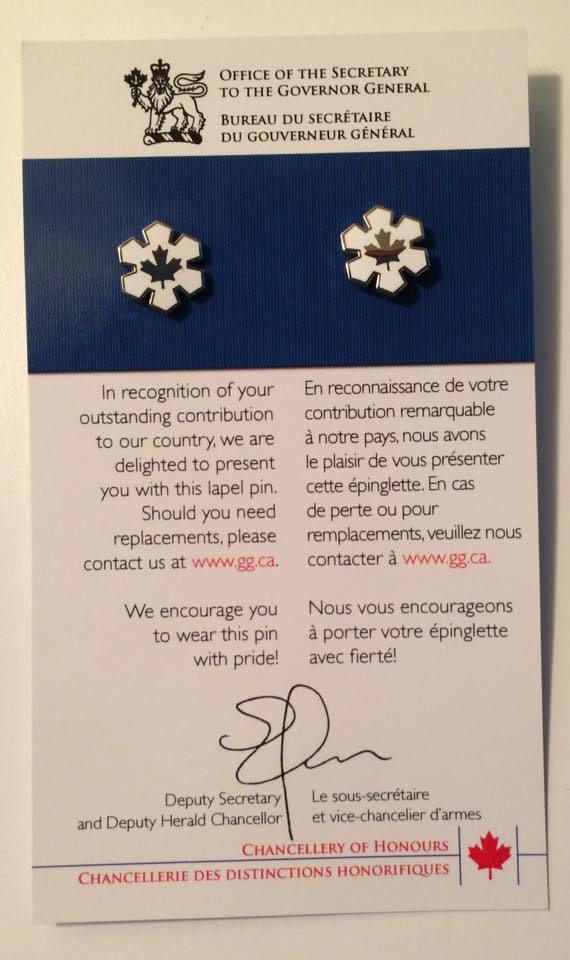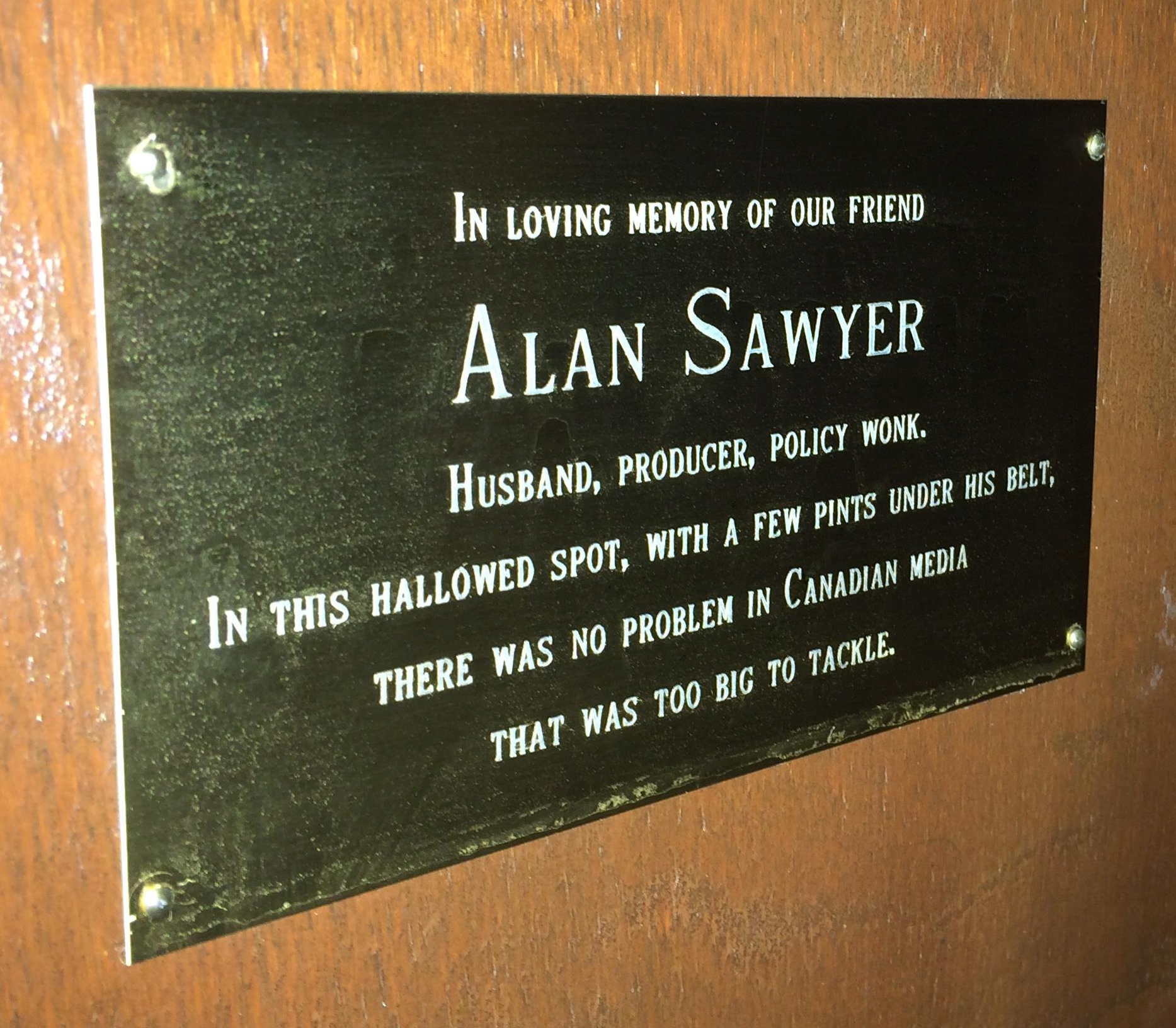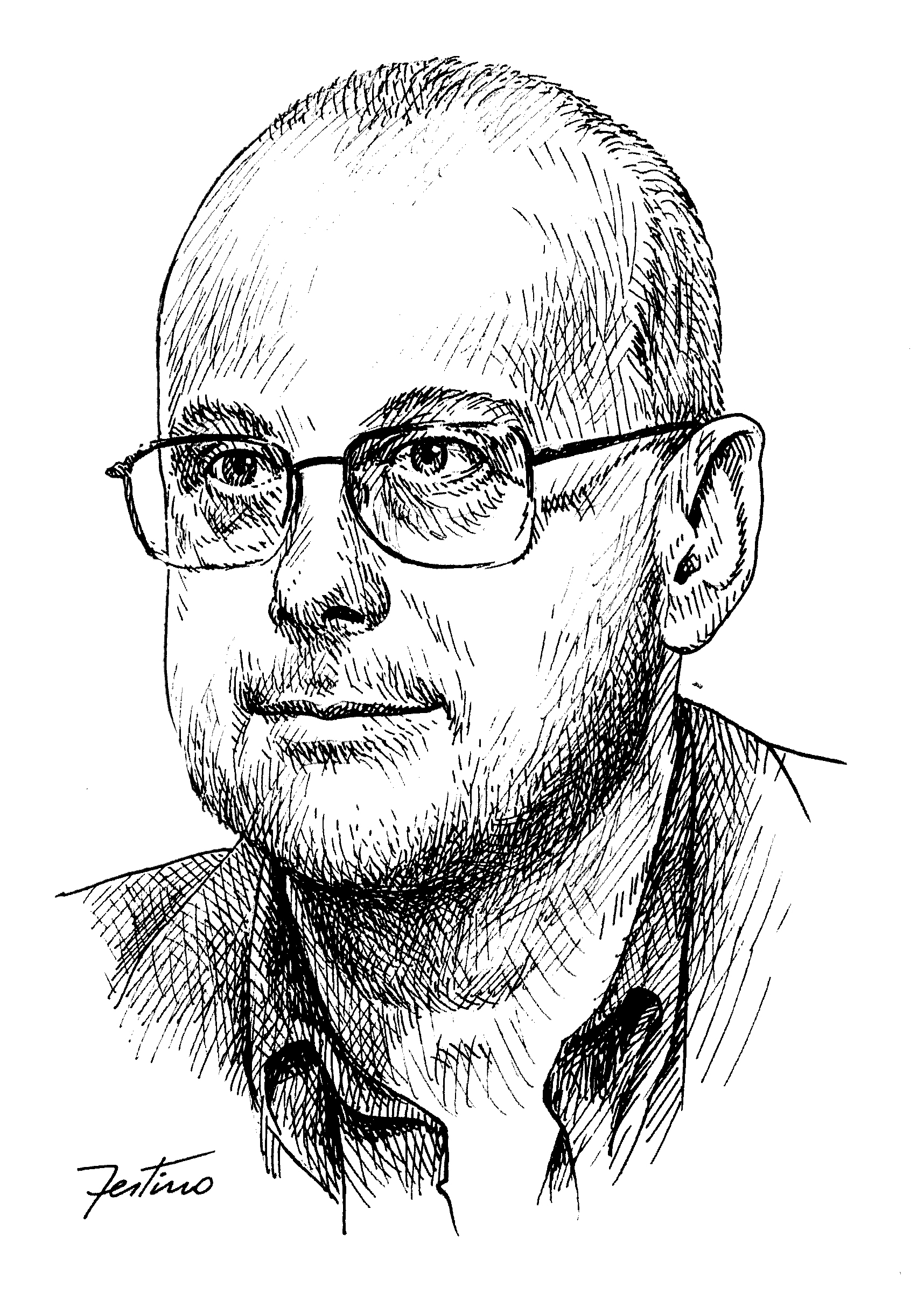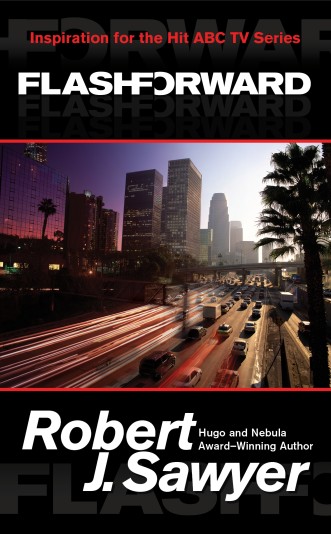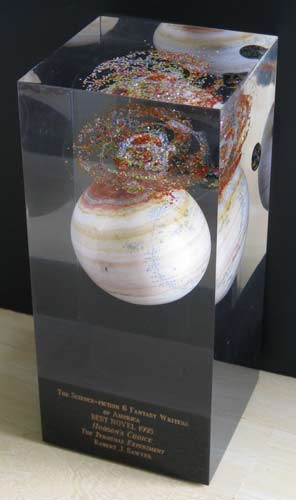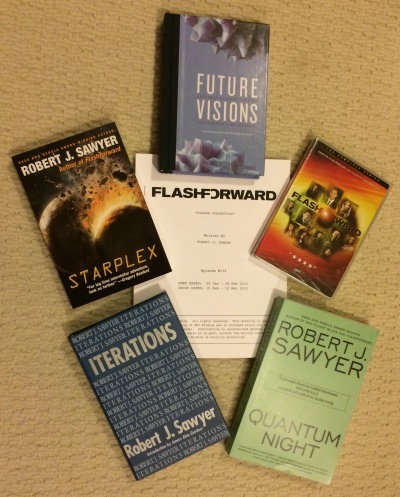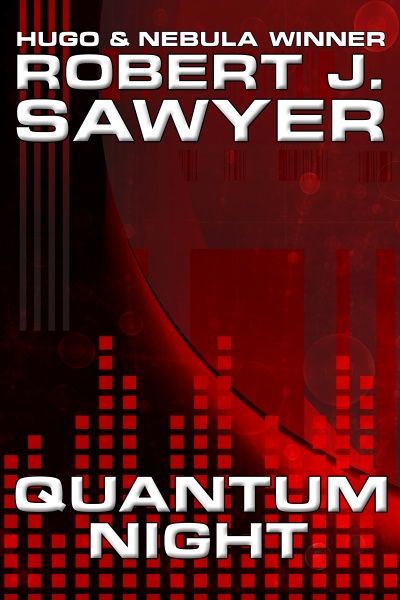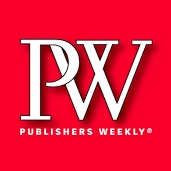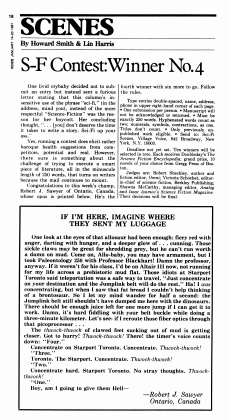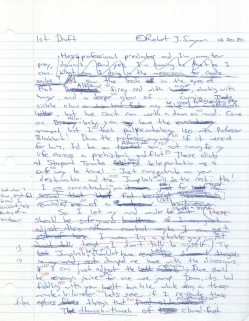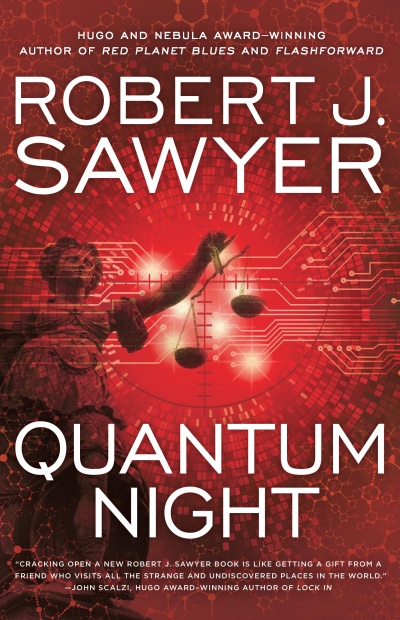
“Hugo and Nebula Award-winning author Sawyer’s latest work is a fast-moving, mind-stretching exploration of the nature of personality and consciousness; it balances esoteric speculation with action and character. Sawyer is very good at grounding the technical speculation in personal conflict, as Marchuk’s utilitarian principles struggle with his emotional impulses and the political/media references keep the story uncomfortably close to present-day fears.”
—Publishers Weekly (starred review, denoting a book of exceptional merit
“A really good book. Just the sort of science fiction I’d like to be writing myself if I had the time.”
—John Gribbin, author of In Search of Schrödinger’s Cat
“This is one `hard SF’ book that manages to throw in large information dumps without boring the reader! The information — and one thing Rob Sawyer is well known for — is necessary to the plot, and extremely well researched, but somehow (and this is a very rare thing) manages to keep the reader alert and involved with the story.
“Rather than a dry discussion on philosophical points, Quantum Night takes you on an exciting ride through a scientific extrapolation in the near-future time of 2020 — only four years away from now — when the US has a new President who seems not to share the conciliatory nature of Barack Obama; when Justin Trudeau’s government is only surviving through a coalition with the NDP (Canadians will understand what that means), and where the entire world seems to be falling into a crevasse of mindless violence where the highest mentality is mob mentality.
“This book makes you want to follow up on all those things mentioned by Sawyer: what are `microsaccades,’ is quantum superposition a real force in neurology, what does it mean to be `neurotypical’? After reading this I spent a couple of days with Google, tracing down paper after paper to find out what’s real and what’s extrapolation.
“This is some exciting writing! This book will be a strong contender for the Aurora Award next year.”
—Steve Fahnestalk, in Amazing Stories
“Quantum Night is simultaneously a breath of fresh air and a return to classic Sawyer: big ideas, relatable people and a Canadian perspective. This is trademark Sawyer.
“Though returning to a favourite topic — the nature of consciousness — he doesn’t retread any old ground here, taking an entirely new angle and approach.
“The publisher is marketing this release as a techno-thriller as much as a science-fiction novel. But Sawyer does it a lot smarter and deeper than is typical of such fare. Thriller fans, science-fiction nuts, armchair philosophers, and psychology teachers alike should enjoy it.”
—Winnipeg Free Press
“Absolutely fascinating, thought provoking, and a ripping good read to boot. I’ve never been disappointed by one of Sawyer’s novels, and the streak continues. A great blend of the scientific with the fantastic, with a philosophically and scientifically compelling hook … Between the great characters, fascinating plot, solid pacing, and just really really interesting concept underpinning the book, it should be a must-read for 2016 for anybody who loves sci-fi, philosophy, psychology or physics.”
—Dan Ruffolo at Strange Currencies
[One of the] “best science fiction and fantasy [books] this month; a fast-paced sci-fi thriller.”
—The Washington Post
“Quantum Night is a classic example of a Sawyer novel: a near future with some cool tech, a complex plot that has the reader thinking and questioning from cover to cover, and plenty of Sawyer-patented wry humor. Fans will be delighted and new readers will be sucked in with this compelling story.”
—Alex C. Telander at Book Banter
“Stunning. Like all of Sawyer’s work, Quantum Night is a compelling read, intensely thought-provoking, filled with real human characters learning new things about their world.”
—Analog Science Fiction and Fact
“This thought-provoking psychological thriller explores the dark recesses of the human mind, tackling concepts such as ethics, morality, consciousness, and human nature. The concepts are well-researched, yet accessible. If you’re looking for a fast-paced, thought-provoking read, look no further.”
—NerdMuch? (#1 on list of best SF/F books to read in March 2016)
“I often think of Sawyer as the last of the old-fashioned SF writers, someone who’s less concerned with the minutiae of imaginary worlds than creating thought experiments that explore the consequences of science fictional ideas in the real world. The central conceit in this one is a doozy, so I won’t give it away. Needless to say, if I were trying to get a non-genre person to read it, I’d describe it as a thinking person’s Purge, with Canadians and Star Trek jokes. It’s also Sawyer’s most explicitly political novel. I’ll be thinking about it a lot this election year, and for years to come.”
—Observation Deck
“Toronto’s award-winning sci-fi novelist returns with a dark gem of a story involving experimental psychology.”
—Post City Toronto
“A truly remarkable work; one of Sawyer’s best. An essential read for anyone interested in the science (and philosophy) of human consciousness, and simply a great dramatic thriller to boot.”
—James Kerwin, writer and director of Yesterday Was A Lie
“Quantum Night by Robert J. Sawyer is a highly recommended science fiction novel set in the near future — with psychopaths, and philosophical zombies.
“Sawyer is an accomplished writer who knows how to give his readers the science they need while keeping the plot flowing. He uses Jim’s lectures to his class in-between chapters to help impart information about psychology and ethics that will be used in the novel. The science and research in the novel is based on fact and Sawyer includes a sizable section of further nonfiction reading that influence his plot and the research within the narrative.
“While there is plenty of thought provoking information in Quantum Night, you’ll find humor in this novel too as well as plenty of geeky quotes and Star Trek references.”
—She Treads Softly
“Robert J. Sawyer’s first new novel in three years is his familiar enjoyable blend of science-based extrapolation, strong characterisation, plot twists, philosophical treatise, pop culture references, bad jokes and high stakes, which I suspect will increase the sales of many of the texts the author quotes in his afterword, since it’s an eye-opening look into our understanding of human consciousness (pun, for those who’ve read the book, fully intended). It’s a subject Sawyer has tackled before — there’s even a fun throwaway line about the FlashForward TV show — but he comes at it from a very different angle on this occasion.
“It’s Sawyer’s most blatantly Canadian book — there’s a considerable amount of detail about the locations in which it’s set. It’s not a paean of praise to his home country, however; in places it’s an almost forensic examination of the cultural and political differences between Canada and its neighbour, which become highly relevant to the book’s third act. The various philosophical discussions that underpin the first two acts are equally important to the denouement; Sawyer reinforces the differing sides of the arguments regarding utilitarianism with deftly chosen pop culture references (Star Trek II unsurprisingly turning up in this, alongside a savage dismissal of its sequel!) as well as through his characters.
“As with all Sawyer’s best novels (of which this is one), the discussions come out of the plot and character development, and there are many taut action sequences that will have you powering through the pages — but it is the concepts at its heart that will reverberate through your thoughts for some time to come.
“Verdict: Another thought-provoking and tense novel from a master science fiction writer.”
—Sci-Fi Bulletin
“No one uses science fiction to ask the big questions quite like Sawyer. IQuantum Night is another exceptional addition to his already-considerable canon, combining his passion for scientific inquiry and a deep curiosity about humanity’s potential with a meticulous attitude toward research and � of course — a mastery of narrative and world building. It’s another first-rate effort from the current king of Canadian science fiction.”
—The Maine Edge (Bangor, Maine)
“Sawyer’s science-fiction novels are about what happens when you introduce one high-concept sci-fi element to an otherwise ordinary world. He then spends the rest of the book examining the ramifications of that collision. His newest, Quantum Night, uses experimental psychology and quantum physics to explore human nature.”
—Seattle Weekly
“What a great, provocative read! From quantum physics to the philosophy of mind, Sawyer’s latest novel will leave you pondering deep questions long after you turn the final page.”
—Dan Falk, author of The Science of Shakespeare
“I just finished Robert J. Sawyer’s new book, Quantum Night. It’s already my new favourite of all of his work. I couldn’t put it down.”
—Kat Curtis, anchor, Naked News
“Quantum Night is a fast-paced thinking-person’s thriller richly informed by modern science. Sawyer has certainly done his homework about psychopaths and he understands well that, far from being just the occasional headline-grabbing serial killer, they’re everywhere.”
—Kevin Dutton, author of The Wisdom of Psychopaths
“Mind-blowing. What Sawyer does, possibly better than anyone else, is take a new scientific theory and extrapolate its real-world effects to their logical extremes. Then he tosses some Canadian, Star-Trek-quoting academics at it to see what happens.
“The ideas that run through his story and the relentless examination of how those ideas might affect the world keep me thinking about his books long after I’ve put them down.”
—Daytona News-Journal
“Quantum Night is literally a psychological thriller, and Sawyer builds heavily on the real-world research of psychologists including Robert Hare (author of the Hare Psychopathy Checklist) and Philip Zimbardo (creator of the infamous Stanford prison experiments). It’s a slow-burn thriller that gently eases up the heat until it’s too late to jump out of the pot one that will likely leave the reader thinking about it long after they’ve read the final page.”
—Prince George Citizen
“Which are you? Are you a sheep, a psychopath or an intellectual? It is a thesis that superstar science-fiction writer Robert J. Sawyer poses in his latest novel Quantum Night. It is an academic paper given the gift of action, adventure, romance and all the other trappings of dramatic storytelling that Sawyer has become world famous for. His discussion, like the book itself, is a made up story, yes, but it is also a button Sawyer is pushing to get the reader thinking about, well, thinking.
“Clearly, this book is not merely an escapist sci-fi story. Anyone familiar with Sawyer’s past work will know that he almost never offers a book just to narcotize the reader with wit and plot. This held true even when Hollywood got their hands on his material, when his book FlashForward was turned into a network television series starring Joseph Fiennes, John Cho, Dominic Monaghan and other notable actors. Even though they took liberties with the script, the social commentary was always at the front of the product.”
—Prince George Citizen (again)
“Science-fiction books to look forward to: Quantum Night by Robert J. Sawyer uses science as a way of exploring the fuzzy line between good and evil.”
—John DeNardo in Kirkus
“Oh how I wish there were more than 5 stars to give to this book! I started reading, and knew right away that I had something wonderful in my hands. Books like this one are why I continue to buy every book that Robert J. Sawyer publishes.”
—SCTechSorceress
“Nebula Award winner Robert J. Sawyer addresses the intricacies of human nature in his latest novel. Sawyer’s novel addresses current cultural and political anxieties within North America in the context of a fast-paced thriller.”
—Quill & Quire
“I loved this book. Loved it. It had all the things I’ve come to expect in a Robert Sawyer book — well researched high concept science fiction, interesting characters, Canadiana, philosophy jokes. If you’ve liked his previous work, you’ll like this one. If you haven’t read anything by Robert J. Sawyer, why the hell not? Reading his books is like riding a water slide; you jump in one end and whoosh through the twists and turns until you pop out the other side.”
—Raven Lunatick
“Where to start in recommending Quantum Night? Robert J. Sawyer’s new novel is set in the very near future. The author has created a plausible, unpleasant future in which new discoveries in psychology and quantum physics might be the only hope for stemming a rising tide of violence and unrest. The novel is fast-paced and thoroughly engaging, questioning what we should do to save humanity given the necessary knowledge and technology.
“Quantum Night examines philosophy, morals, ethics, and science in the context of a society that is slightly different, but completely recognizable to us in 2016, and takes on an added element of foreboding when one considers the current political drama taking place in the United States.”
—49th Shelf
“I’m nursing my copy of Quantum Night, reading a chapter a night, to prolong the reading experience. I’m prepared to regard it, now three-quarters finished, as Rob’s best novel so far, an immense accomplishment — best in the sense of being accomplished, exciting, engrossing, good-humoured, informative, thought-provoking … and very Canadian!”
—John Robert Colombo, compiler of Colombo’s Canadian Quotations
“A new mind-bender from Robert J. Sawyer. It’s been way, way too long since Robert J. Sawyer unleashed one of his thought-provoking high-concept books on us. And this time, he’s asking deep questions about the nature of consciousness.”
—io9
“A great read; Sawyer’s best novel of ideas yet in terms of science, plot, character, and sheer mind-stretching, expansive generosity of spirit. This book is a page turner — and for the purposes of those who work away at that which makes us human, it could not be better.”
—James Christie, Director of The Ridd Institute for Religion and Global Policy
Robert J. Sawyer online:
Website • Facebook • Twitter • Email
